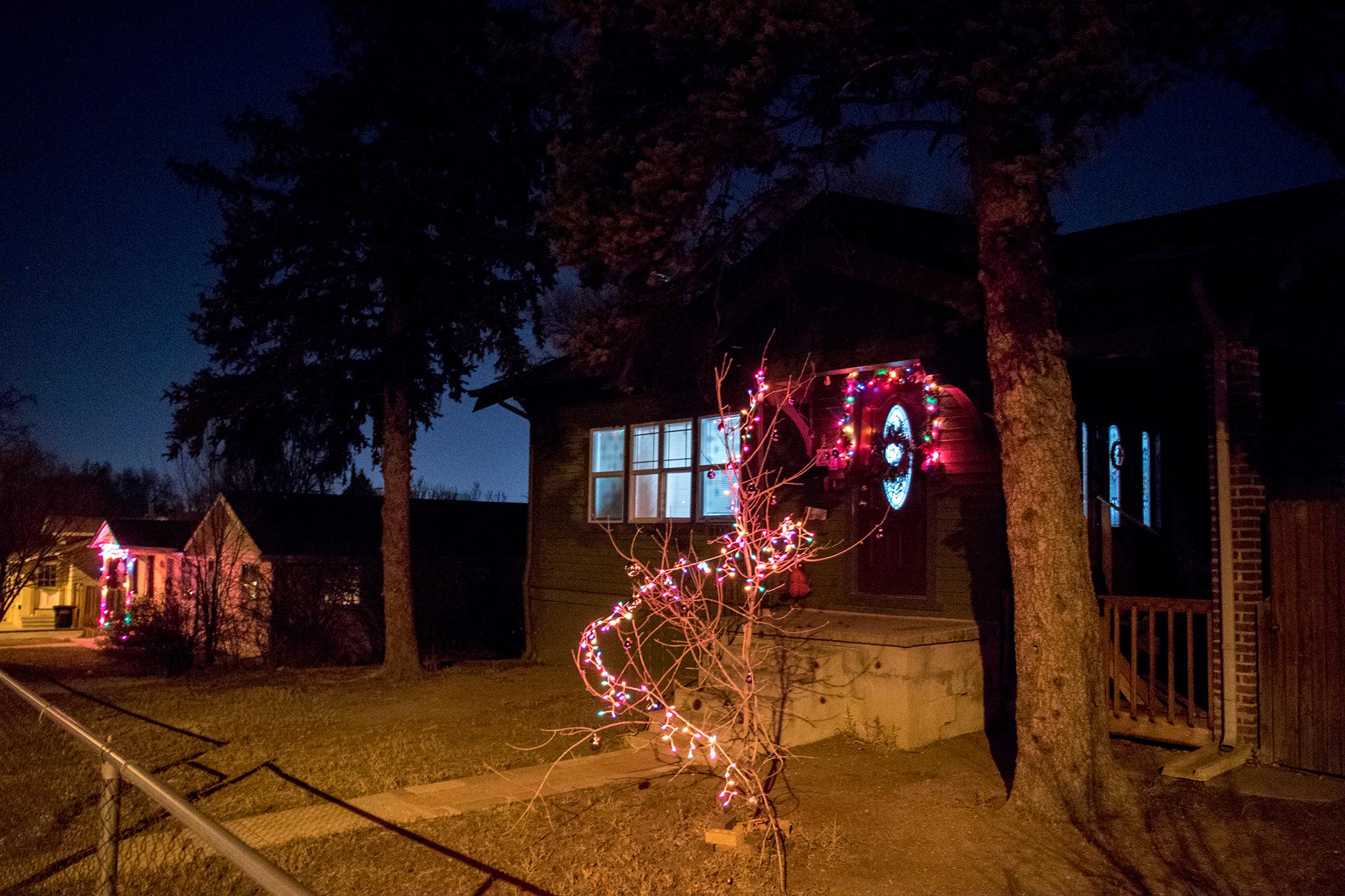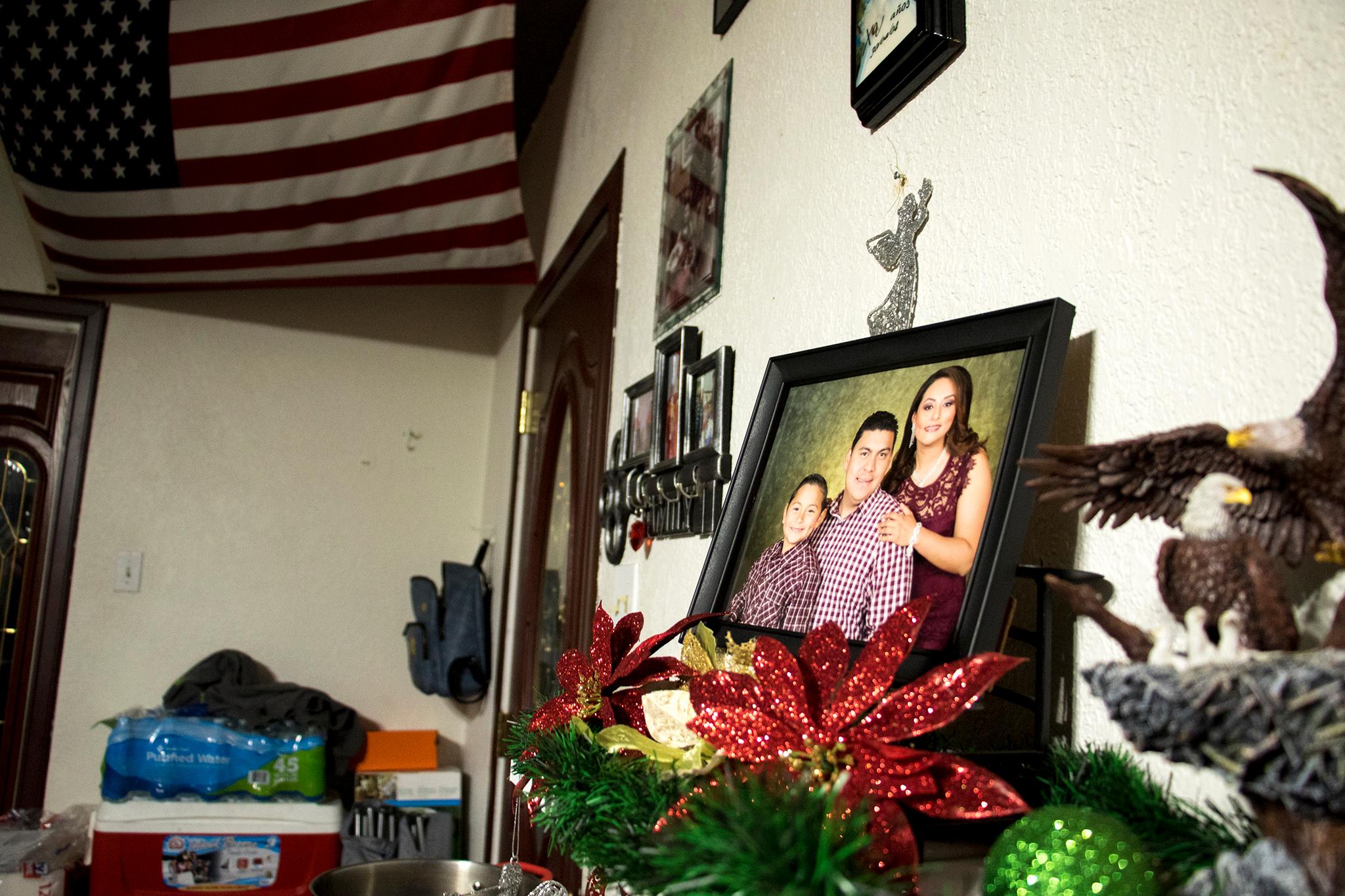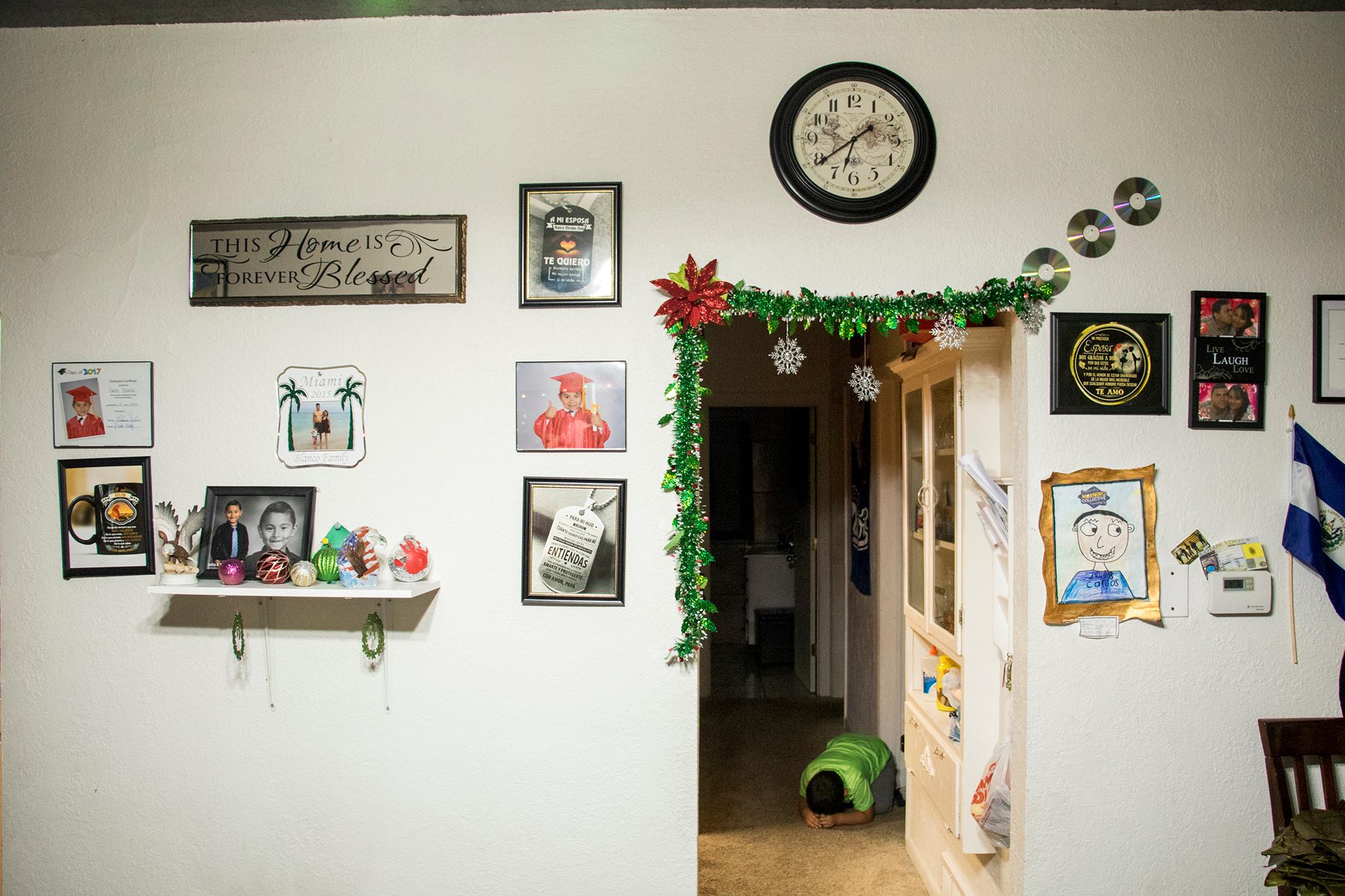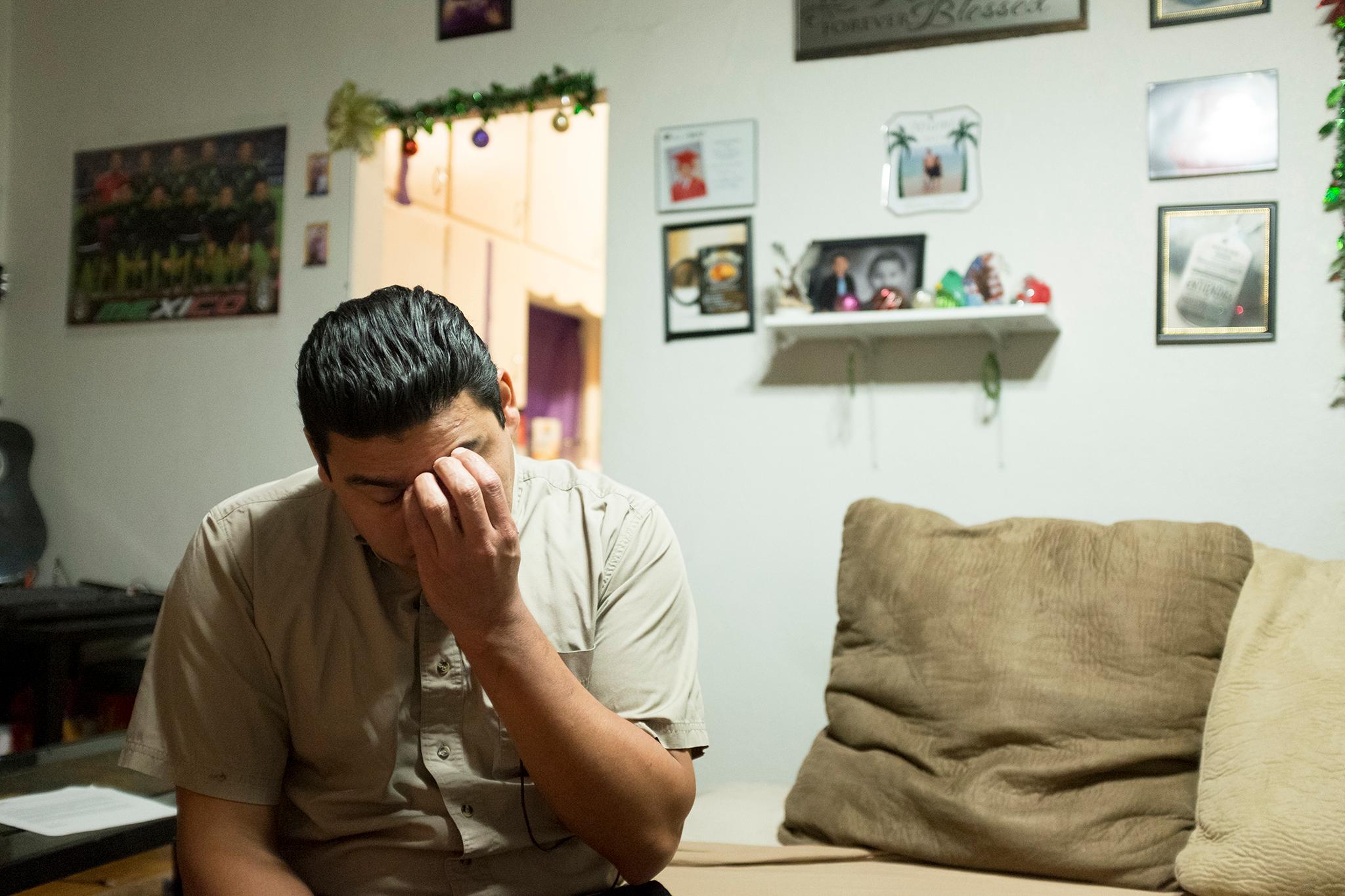Carlos Blanco has lived in Denver without legal residency since he arrived here from El Salvador in 2005. In 2011, a car accident resulted in a run-in with police. On Tuesday, as a result of that incident, a judge might finally rule if he must leave the country.
As the federal government cracks down on immigration, both legal and illegal, the majority of undocumented migrants living in the country today are thought to people who have been here for many years. Blanco, who has long been a chef in the metro area, may be one of that class that are now facing the reality that they must leave.
Last week, under a decorated tree in his home close to Federal Boulevard, Blanco recalled his first Christmas in the U.S.
"Everything was just covered in snow and totally quiet," he said through translator Jennifer Piper, an immigrants' rights activist with the American Friends Service Committee. "I wanted to cry because I missed it so much."
But El Salvador was a place that his family decided they could not stay. Gang violence and poverty was too much to bear in the early 2000s. It made for a risky journey north, eventually on foot through the Mojave desert, but he said it was worth it. He joined his mother, a brother and a sister when he arrived.
Today, despite a pending deportation order, Blanco said his family back home still tells him he must do what he can to avoid coming back.
"You can't come back here," they tell him. "There's nothing for you here. The violence is so bad. The poverty is so bad. You have to find a way to stay."

In January 2011, Blanco said his car slid on ice and clipped a guard rail in Arapahoe County.
A police car was driving behind him and stopped to check his driver's license. He didn't have one. Blanco said then police began preparing to take him into custody.
He waited in three jails between that Monday and the following Friday. He was first taken to Arapahoe County jail, and then was soon transferred to El Paso County, where he was able to call his mother. He was then transferred again. By the end of the week, his mother had charged $10,000 to her credit card to get him out. He's since been paying the interest on that charge as he waits for a decision on his case, a financial burden that's risen since he was taken into custody. When it's all over, his mother will be paid back the money she spent to bail him out.
In 2011, Blanco was a single man. Today, as he waits to hear his fate, he has a wife and a child at home whose futures he worries about. He told Denverite if he knew who would be president today he might have avoided getting married or having a kid. He might have self-deported. But back then, he said he believed the U.S. was a country of opportunity. He thought the instability at home and his work in the local economy would be enough that he'd be allowed to stay.

Blanco has a handful of citations on his record, mostly related to driving without a license. He was also found guilty of a DUI in 2006.
Ironically, when the incident in 2011 brought him before an immigration judge for the first time since his arrival, he was granted a work visa to support himself until the matter was settled. That allowed him to legally obtain a driver's license and Social Security number that he's used ever since.
During the seven years since his status was brought before a judge, Blanco learned of immigration activist Jeanette Vizguerra on TV and contacted her for help. Vizguerra connected him with her attorney, Hans Meyer, who is representing Blanco on Tuesday.
Blanco said his only charge in immigration court is entering the country illegally. Piper, who has worked with many people in removal proceedings, said a single instance of illegal entry wasn't grounds for deportation a few years ago.
Blanco is among the majority of undocumented immigrants who have lived in the U.S. for a long time.
Last month, the Pew Research Center released a report that estimated most unauthorized migrants in the country have lived here for more than a decade. The report stipulated that the reason for this is related to a "very large drop" in new undocumented arrivals since 2007, and estimates that "two-thirds of adult unauthorized immigrants have lived in the country for more than 10 years."
As the number of new undocumented arrivals fell in recent years, Pew's analysis found, the number of U.S. born children with undocumented parents rose. Pew estimates today about 5 million children in the U.S. live with unauthorized immigrant parents. Blanco's son is one of them.

The Migration Policy Institute estimates that in 2016 there were about 11.3 million undocumented people living in the U.S. Of those, the think tank estimated 162,000, or a little more than 1 percent, resided in Colorado. The majority of that population in 2016 was thought to be living in the Denver metro area.









